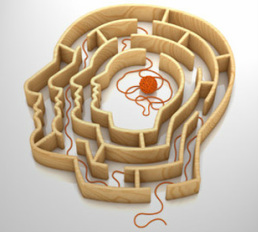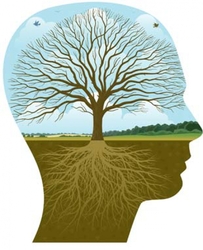Our Services

Which type of therapy is right for me?
30 years ago, there was a controversy about psychotherapy. Does it work or do people just get better on their own? Today the weight of the research is clear that psychotherapy works. The question often becomes, which one is the best?
This is a difficult question to answer in a few sentences, especially since some forms of therapy, especially CBT (see below), lend themselves much better to research than others; this creates the impression that some are“better” than another. It is my belief from the evidence that the
relationship between client and therapist is critical. The therapist must be competent and
invested in their work, whatever that form of therapy may be. The fact is that the “ingredients” or therapy seem to matter less than the commitment to work together to do what is required to get better. Each form of therapy is a way to frame the client's concerns, establish goals and how to work towards them. A personalized treatment is what Herald Square Psychology is committed to giving to each client.
30 years ago, there was a controversy about psychotherapy. Does it work or do people just get better on their own? Today the weight of the research is clear that psychotherapy works. The question often becomes, which one is the best?
This is a difficult question to answer in a few sentences, especially since some forms of therapy, especially CBT (see below), lend themselves much better to research than others; this creates the impression that some are“better” than another. It is my belief from the evidence that the
relationship between client and therapist is critical. The therapist must be competent and
invested in their work, whatever that form of therapy may be. The fact is that the “ingredients” or therapy seem to matter less than the commitment to work together to do what is required to get better. Each form of therapy is a way to frame the client's concerns, establish goals and how to work towards them. A personalized treatment is what Herald Square Psychology is committed to giving to each client.
Psychodynamic Psychotherapy

A Foundation Approach at HSP
In short, psychodynamic refers to conflicts in the mind that influence people’s lives, particularly relationships, outside of their awareness; the goal is to make people aware of how they mentally defend against their own thoughts, and become more flexible and effective in their lives. Much like the difficult-to-see ailments the doctors above had to identify, psychodynamic therapy has had the enormous challenge of turning unseen mental forces into concepts science can see and test. Although this has been difficult, psychodynamic theory is the elegant and deepest approach to broad character change. Whether it is delivered in a brief, intensive and time-limited form, or in long term psychoanalysis, psychodynamic theory has changed lives of people for the better for over a century.
In short, psychodynamic refers to conflicts in the mind that influence people’s lives, particularly relationships, outside of their awareness; the goal is to make people aware of how they mentally defend against their own thoughts, and become more flexible and effective in their lives. Much like the difficult-to-see ailments the doctors above had to identify, psychodynamic therapy has had the enormous challenge of turning unseen mental forces into concepts science can see and test. Although this has been difficult, psychodynamic theory is the elegant and deepest approach to broad character change. Whether it is delivered in a brief, intensive and time-limited form, or in long term psychoanalysis, psychodynamic theory has changed lives of people for the better for over a century.
CBT - Cognitive Behavioral Therapy

What is CBT?
CBT is a second-wave behavioral therapy that teaches the client to observe their automatic thoughts and beliefs. It identifies, challenges then change ones distorted thoughts and maladaptive and self-defeating behaviors quickly and effectively. It has been shown to reduce symptoms at clinically significant levels; it even teaches the client to become their own therapist. The process is remarkably simple, with no secret ingredients, and is generally accomplished by simple question and answer along with some “homework” assignments. CBT was initially developed to relieve depression, but has been used effectively in anxieties, eating disorders, substance abuse and many other everyday life concerns. More recently, a third wave of behavior therapy learned from the inevitable anomalies that occur in any therapy, including CBT, which led to mindfulness based therapies (see below) that add benefit to CBT; that mindfulness based therapy is also available at Herald Square Psychology.
CBT is a second-wave behavioral therapy that teaches the client to observe their automatic thoughts and beliefs. It identifies, challenges then change ones distorted thoughts and maladaptive and self-defeating behaviors quickly and effectively. It has been shown to reduce symptoms at clinically significant levels; it even teaches the client to become their own therapist. The process is remarkably simple, with no secret ingredients, and is generally accomplished by simple question and answer along with some “homework” assignments. CBT was initially developed to relieve depression, but has been used effectively in anxieties, eating disorders, substance abuse and many other everyday life concerns. More recently, a third wave of behavior therapy learned from the inevitable anomalies that occur in any therapy, including CBT, which led to mindfulness based therapies (see below) that add benefit to CBT; that mindfulness based therapy is also available at Herald Square Psychology.
IPT - Interpersonal Psychotherapy

Interpersonal therapy is a name for 2 kinds of therapy that sound the same. The first is a psychodynamic therapy that is powerful and analyzes the interpersonal field that is constantly operating in any social interaction.
At HSP, we employ scientifically validated Interpersonal Psychotherapy (IPT) that is often used for depression, but has received support as a mode of treatment for many different challenges in life such as marital problems, bipolar disorder, eating disorders, anxiety disorders, substance abuse and more. It was influenced by the psychodynamic therapy above but does not emphasize the internal psychic forces that act on the individual, but by interpersonal interactions outside the individual.
IPT was developed in the 1970’s and focuses on relief of symptoms and social impairment due to depression, which is treated as a medical illness. It links the flow between interpersonal events and mood; this therapy is time-limited to 16 sessions and enjoys 35 years of research showing its efficacy. It structured to address several factors that contribute to depression and gives the client recommendations to follow over discrete phases of treatment. Most recently, IPT was brought to the federal government to help veterans with depression in the VA system.
At HSP, we employ scientifically validated Interpersonal Psychotherapy (IPT) that is often used for depression, but has received support as a mode of treatment for many different challenges in life such as marital problems, bipolar disorder, eating disorders, anxiety disorders, substance abuse and more. It was influenced by the psychodynamic therapy above but does not emphasize the internal psychic forces that act on the individual, but by interpersonal interactions outside the individual.
IPT was developed in the 1970’s and focuses on relief of symptoms and social impairment due to depression, which is treated as a medical illness. It links the flow between interpersonal events and mood; this therapy is time-limited to 16 sessions and enjoys 35 years of research showing its efficacy. It structured to address several factors that contribute to depression and gives the client recommendations to follow over discrete phases of treatment. Most recently, IPT was brought to the federal government to help veterans with depression in the VA system.
ACT - Mindfulness Based Therapy

ACT and Mindfulness gained popularity in the last decade or so in psychotherapeutic and scientific circles. Essentially, the key ingredients of mindfulness are thousands of years old and come from India and Asia, especially through Buddhists who have been aware of the benefits in improving life in a way that can been seen (if you know where to look) in most psychotherapies today. In fact, Morita therapy came from Japan in the 1920’s, contemporary to Freud, and used Mindfulness. Dr. Furr came to Mindfulness through his own research, which provided evidence of the benefits of Mindfulness on virtually anyone open and willing to embrace its usefulness. Dr. Furr has also taught classes in Mindfulness to help people step out of “automatic-pilot” and into the moment at hand, the only time we truly have to make a change.
Many studies and clinical experience have shown Mindfulness to help with:
|
|
|
|
Acceptance and Commitment Therapy (ACT) and Dialectical Behavior Therapy (DBT) both borrow heavily from the Mindfulness techniques. Dr. Furr has always successfully implemented ACT and DBT techniques to many cases presented to his practice and in Herald Square Psychology largely by asking clients to tolerate painful thoughts and feelings AND accomplishing the goals they value.
What is Mindfulness?
Mindfulness is directing awareness attention to one’s inner experience, moment by moment, without trying to change or judge that
experience. That may sound simple, so simple that it may not make sense at first or seem like any big deal, but it is a BIG deal.
Put another way, mindfulness asks us to pay attention to and accept our inner experiences. Those inner experiences are
things like thoughts, feelings, urges, sensations, memories, etc. The reason paying attention to it is a big deal is because we tend to
judge all our experiences as either “bad” things to avoid or “good” things to have and yearn for.
Why does it matter? Because our automatic pilot to get what we want not get what we don’t want leads to addiction, worry, depression, suicide, shame, staying in destructive relationships, staying stuck in work problems, and so on.
In treatment, we learn to be more effective in dealing with the very inner world no one can truly avoid, as much as we like to, and live the lives we value and deserve.
What is Mindfulness?
Mindfulness is directing awareness attention to one’s inner experience, moment by moment, without trying to change or judge that
experience. That may sound simple, so simple that it may not make sense at first or seem like any big deal, but it is a BIG deal.
Put another way, mindfulness asks us to pay attention to and accept our inner experiences. Those inner experiences are
things like thoughts, feelings, urges, sensations, memories, etc. The reason paying attention to it is a big deal is because we tend to
judge all our experiences as either “bad” things to avoid or “good” things to have and yearn for.
Why does it matter? Because our automatic pilot to get what we want not get what we don’t want leads to addiction, worry, depression, suicide, shame, staying in destructive relationships, staying stuck in work problems, and so on.
In treatment, we learn to be more effective in dealing with the very inner world no one can truly avoid, as much as we like to, and live the lives we value and deserve.
What Concerns Can I Get help with at HSP?
|
Specialties
Session Types
|
Issues:
|
Mental Health:
|